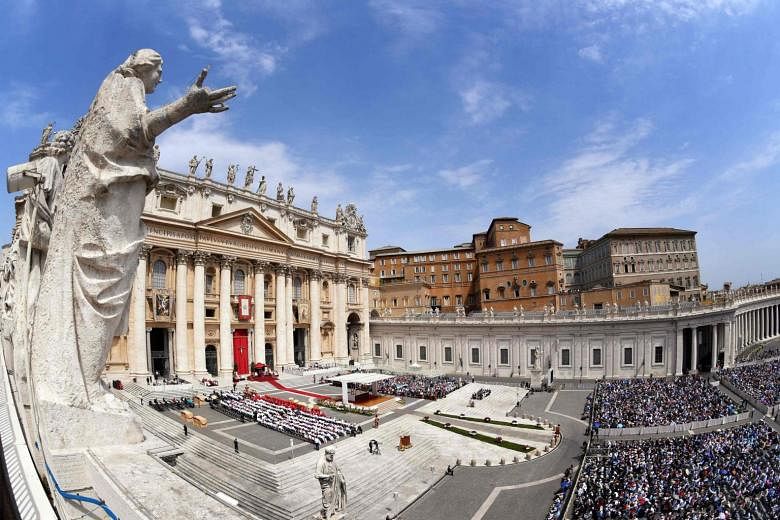BEIJING (AFP) - China has ordained its first bishop since reaching an agreement with the Catholic Church intended to encourage a rapprochement between Beijing and the Holy See.
China's roughly 12 million Catholics have for decades been split between a government-run association, whose clergy were chosen by the atheist Communist Party, and an unofficial underground church loyal to the Vatican.
But under the terms of the deal agreed in September last year, both Beijing and the Vatican will now have a say in appointing Catholic bishops.
China's official church, the Chinese Catholic Patriotic Association, said Mr Yao Shun was ordained as bishop of the diocese of Ulanqab in north China's Inner Mongolia Autonomous Region on Monday (Aug 26).
The law in China requires priests and bishops to register and align with the country's official church.
But the Vatican said the bishop, whom it named as Antonio Yao Shun, had also "received the Papal Mandate" at the ordination, according to a statement by Mr Matteo Bruni of the Holy See press office.
It said the ordination was the "first to take place in the framework of the Provisional Agreement between the Holy See and the People's Republic of China", whose diplomatic relations were severed in 1951.
According to a report in the state-run Global Times on Wednesday, China faces a shortage of bishops, with around a third of the 98 dioceses having no bishops and many older bishops set to retire.
State media reports said another Chinese bishop was set to be ordained on Wednesday, although the official church did not confirm this.
Although ties have improved as China's Catholic population grows and the Vatican intensifies efforts to restore relations, tensions remain.
The Vatican is the only European diplomatic ally of Taiwan. In June, the Vatican called for Beijing not to intimidate Catholics who were still choosing to worship at underground churches that refuse to swear allegiance to the official state church.
Recent years have also seen a clampdown on religious worship in China on multiple fronts, with churches destroyed in some regions and restrictions on the sale of Bibles.

